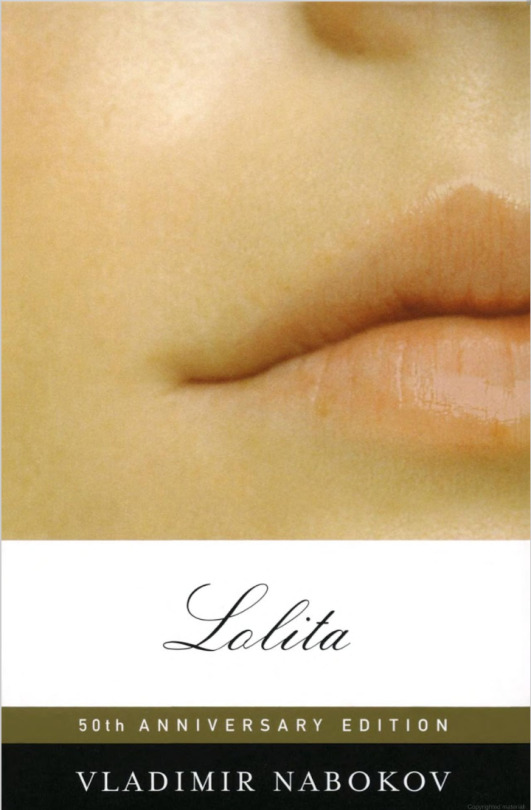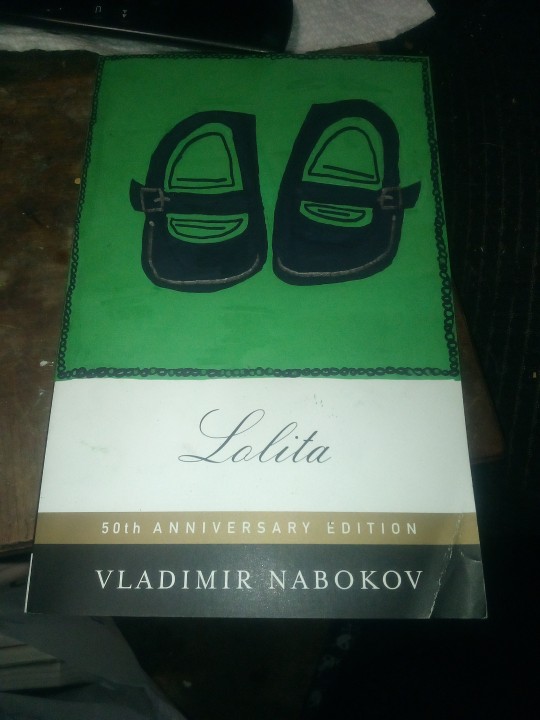#lolita vladimir nabokov
Explore tagged Tumblr posts
Text
'Real intellectuals in fandom love complex ships'And the complexity is rape culture
#i'm not done#anti zutara#antilukercy#anti percy x gods#anti booktok#anti reylo#anti tauradonna#anti batcest#lolita vladimir nabokov#dracula#mina harker#dracula 1897#anti harry potter#anti marauder's era#anti hogwarts legacy#anti fbatft#anti slade wilson#antihadesephone#sa cw#child molestation cw#cp cw#pedophillia cw#grooming cw#incest cw#r word tw#labyrinth#labyrinth 1986#david bowie was an irl kiddy fiddler btw and i ain't joking.google it#summerposting#transfem percy jackson
135 notes
·
View notes
Text
reading lolita for the first time and im mostly shocked at how blatant it is that humbert humbert is a pedophile. dont misunderstand, i knew exactly the plot of lolita before reading lolita, however, considering a good 85-95% of the world's population seems to think that it's a romance story, and with the knowledge that HH is an unreliable narrator, i thought the pedophilia in lolita might have been easy to miss. maybe under layers of subtext you could easily glide over if you were passively reading instead of critically analysing.
but no! humber humbert, even when doing his very best to convince you otherwise, is very clearly and very deliberately a self-centered, egotistical, misogynistic, pretentious, cowardly predator, in his own goddamn words. even if you 100% take his word for everything that happens -- that delores invited his attraction, that charlotte haze was killed in a freak car accident, that all of these women were falling and fawning over him, etc., -- all of those traits still remain to be true, as told by his own hand.
you have to be one of two things to think lolita is a love story, and i hope it's that you're lazy and didn't read the book.
#charlie.txt#lolita#lolita vladimir nabokov#vladimir nabokov#(last sentence is for impact i dont actually think youre lazy if you dont want to read a book abt a pedophile)#(but if youre going to have strong opinions on lolita that comes with at least familiarising yourself with the plot)
87 notes
·
View notes
Text
if i hear another boy tell me that they relate to humbert because he's 'misunderstood' i swear to god i will become jennifer check
#lolita#lolita book#lolita vladimir nabokov#vladimir nabokov#humbert humbert#ew#like bruh how can you not UNDERSTAND#it's written there RIGHT IN FRONT OF YOU#DO YOU HAVE EYES???#jennifer check#jennifers body
70 notes
·
View notes
Text
Getting emotional over Dolores Haze today

#SHES TWELVE YEARS OLDDDDDD#SHE LIKES TO SKATE AND PLAY TENNIS AND READ COMICS#SHE PROBABLY STOLE HER MOM’S LIPSTICK AND NAIL POLISH AND PUT IT ON AT HER VANITY AND IT ALWAYS CAME OUT REALLY MESSY#GODDDDD DOLORES YOU LITTLE SWEETIE#lolita vladimir nabokov#dolores haze#fuck Humbert Humbert all my homies hate Humbert Humbert
11 notes
·
View notes
Text
if there was a most insufferably despicable narrator award it would go to nabokov's humbert humbert
#the fucking rage i feel#the sheer audacity#vladmir nabokov#lolita book#lolita novel#lolita vladimir nabokov
31 notes
·
View notes
Text

reading the book right now & i love 💋
#lolita1997#lolita vladimir nabokov#dolores haze#literature#films#girly#girlblogging#just girly posts#daddy issues#oldermen#thought daughter#coquette#lolita fashion
16 notes
·
View notes
Text
Something I feel Very Strongly about is the misinterpretation of Lolita, especially Visually. I think it started about 3rd edition, or recently after the first interaction of film came out. Beyond the disaster of producing, it started a flattening of the book and message... The heart shaped glasses and seductive lollipop ("loli-pop" *gags*) just defeats any argue against the harmful nature of what Lolita has groen to. Not a terrifying look into what someone says to justify the worst, but the demonization of the victim.
Anyway, I painted over my copy in a way that I feel doesn't glorify


It's something but a silent protest even still
34 notes
·
View notes
Text
finished lolita. ough.
#dolores is just. so interesting. i hope shes happy forever#lots to chew on here#humbert is also interesting (i hate him) what a sick wet freak of a man (/very very negative)#killing him with bricks#lolita book#lolita vladimir nabokov
22 notes
·
View notes
Text
Visualizing Obsession: A Comparative Study of Lolita in Literature and Film
Characterized by an unreliable narrator, intricate wordplay, and an intimate look into the essence of obsession and desire, Nabokov’s Lolita demonstrates inherent challenges for screen adaptation. At the heart of the story lies Humbert Humbert, an adult literature professor who becomes infatuated with his landlady’s daughter, 12-year-old Dolores Haze, whom he nicknames Lolita. In 1997, Adrian Lyne underwent the daunting task of directing a film adaptation of an undeniably controversial novel. Lolita presents larger questions of fidelity to source material and the ethics of problematic representation through the lenses of heart-shaped glasses worn both by an on-screen and in-book Lolita.
Despite both works sharing the same central narrative—a middle-aged Humbert Humbert's obsessive and sickening relationship with his stepdaughter—they differ significantly in narrative style. The novel features an unreliable protagonist and narrator, whose “baroque language” (Wood 98) serves to highlight his disturbed psyche, mixing seduction with deep disturbing content. This writing style, and the insistence Humbert makes throughout the novel, being that his “obsession with Lolita and his actions towards her are artistic in nature... as opposed to carnal, bliss” (Quayle 2009), forces readers to grapple with their own moral judgments. Adrian Lyne’s film adaptation on the other hand, adopts a more straightforward visual approach, relying on cinematic techniques to convey drama and emotional tension, as expected with the genre. While the film retains the main plot, it often oversimplifies character motivations and dynamics, presenting a romanticized view that diminishes the depth found in the novel's intimate first-person perspective. This shift in both narrative and aesthetic style impacts how audiences engage with the themes of obsession and manipulation. Scholar Anne W. McNerney argues that the seductive imagery and emotive score can create an aesthetic allure that overshadows the chilling reality of the underlying themes, leading to a potential glamorization of Humbert’s predatory behavior (McNerney 1997). Rather than being an active participant to Lolita’s suffering, audiences instead watch glamourous scenes play out in front of them, illustrating the inherent difficulties of translating such a complex novel to screen.
Examining the titular character, Lolita, in both the novel and its film adaptation reveals how her multifaceted nature is often sacrificed for dramatic effect. In the novel, Lolita is portrayed as a character with agency, who navigates her traumatic experiences with a unique blend of innocence and cunning. Lolita’s character is presented through Humbert, the story’s unreliable narrator, which highlights her alleged manipulation and leaves readers questioning whether his descriptions are accurate or distorted. This nuance is difficult to illustrate in film, and Lyne’s adaptation appears as if it reduces Lolita to a victim of Humbert’s obsession as opposed to an active participant in her story. Although one can argue this is the accurate interpretation of the story’s events, a key theme in Lolita is the audience’s participation and constant questioning of the narrator. This shift can be attributed to the constraints of cinematic storytelling, where visual representation prioritizes dramatic tension over psychological depth. Focusing on Humbert’s perspective in film would risk perpetuating the very objectification Nabokov critiques (Williams 1995). Ultimately, the responsibility of ethical portrayal is different in film and literature.
The richness of Nabokov's narrative, along with its psychological depth and moral complexity, is often diluted in the pursuit of cinematic allure. As filmmakers navigate the treacherous waters of adapting sensitive material, they must grapple with the responsibility of representation and the potential repercussions of their choices. There is a necessity for a nuanced approach that honors original text while remaining vigilant about the implications of how such stories are to be viewed by the public.
--------------
Works Cited
McNerney, Anne W. "The Trouble with Lolita: Adapting Nabokov for the Screen." Literary Adaptation and the Digital Age, 1997.
Quayle, Anika Susan. "Lolita Is Dolores Haze: The 'Real' Child and the 'Real' Body in Lolita." Nabokov Online Journal, vol. 3, 2009.
Williams, Linda. "Viewing the 'Unviewable': Humbert and Lolita." Film Quarterly, vol. 49, no. 3, 1995, pp. 4-15.
Wood, Michael. “The Trees Were Already Blue.” Raritan, vol. 30, no. 1, Summer 2010, pp. 94–101.
#lolita1997#lolita nabokov#lolita vladimir nabokov#lolita#lolita1962#dolores haze#humbert humbert#written#writing#creative writing#study#writers on tumblr
6 notes
·
View notes
Text
Jkr called Lolita 'a great and tragic love story' and she's the same person who wrote a 22 year old woman and a 35 year old man as a romance with him rejecting her because he's 'a good guy' but 'giving in' since she kept pursuing him and the narrative playing it as what was best for both of them and she was also his childhood best friend's cousin.Threads
#anti harry potter#anti marauder's era#anti hogwarts mystery#anti hogwarts legacy#anti fbawtft#lolita vladimir nabokov#pedophillia cw#age gap cw#grooming cw#incest cw#child molestation cw#misogyny cw#💌#summerposting
42 notes
·
View notes
Text
Also I am currently reading Lolita, is anyone interested in my very angry character Analysis of Humbert or... should I shut the fuck up?
#caktusjuice babbles#lolita vladimir nabokov#lolita novel#tw csa mention#tw csa#Like I hate humbert so fucking much#I could psychoanalyze this fucker till the cows came home and then still have enough energy to shit talk his sorry ass
9 notes
·
View notes
Text
Today on horrible remarks from adults I know:
My history & politics teacher calling 'Lolita' by Vladimir Nobakov a "Love story" unironically
15 notes
·
View notes
Text
men liking the film American Beauty is the filmbro equivalent of men liking Lolita (they’re pedos)
7 notes
·
View notes
Text



current read: Lolita by Vladmir Nabokov 🍒
“You see, she had absolutely nowhere else to go”
5 notes
·
View notes
Text

14 notes
·
View notes
Text
writing a sequel to lolita- not because there is any conceivable way you could effectively write a continuation of the events of the story, but solely to give it the title LMAOlita
#you can say this is dumb#and yeah im just shitposting but like-#cmon its no dumber than those revisionist books that write from Lo's perspective#not... the worst notion in theory but has NEVER been done well :/#vladimir nabokov#lolita vladimir nabokov
14 notes
·
View notes